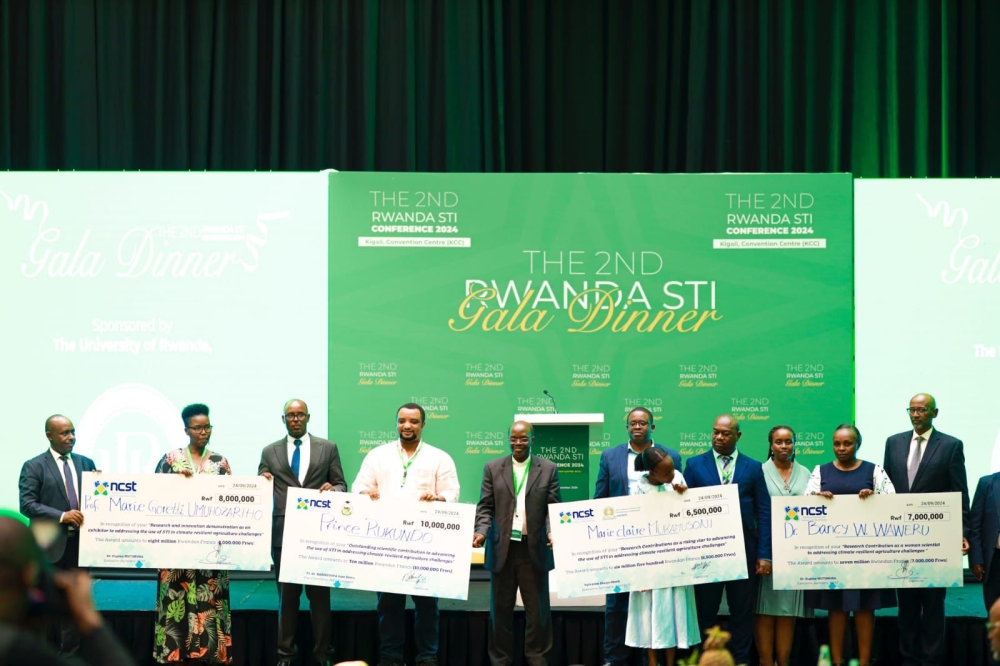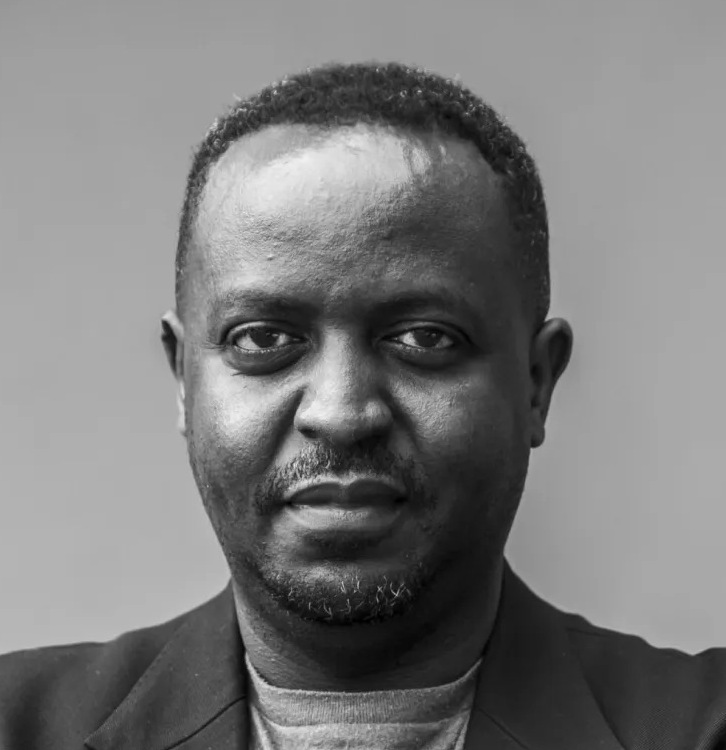

The September 23-24 second Rwanda Science, Technology, and Innovation Conference held in Kigali brought together researchers, scientists, and innovators from around the world to share their expertise on climate-resilient agriculture and food security challenges. During the conference, The New Times had the opportunity to sit down for an interview with Prince Rukundo, an expert in artificial intelligence who was recognized as the best researcher at the conference.
ALSO READ: Rwanda could earn Rwf730bn from Artificial Intelligence – study
Besides his award, Rukundo talked about the use of advanced technologies, such as machine learning and AI, to address key challenges in agriculture, and the steps Rwanda should take to incorporate AI in agriculture.
The excerpts:
First all, who is Prince Rukundo?
I am an expert in artificial intelligence (AI), specializing in computer vision and machine learning. Since 2015, I have been part of the research and teaching staff at the University of Rwanda, contributing to AI-driven solutions such as detecting Covid-19 and tuberculosis.
You were recognized as the best researcher at the conference. How did it feel to receive the award?
The award isn&039;t just a personal achievement. It’s a reflection of the importance of the work we are doing in agriculture through the integration of modern technologies. Agriculture is the backbone of Rwanda’s economy and the potential impact of this research could help transform the sector.
The recognition reinforces the idea that AI and precision agriculture are tools that can significantly enhance productivity and sustainability.
ALSO READ: Student develops AI platform to provide expert advice to farmers
Please tell us more about the research.
The research focuses on utilizing advanced technologies, such as machine learning and AI, to address key challenges in agriculture. This is what we call precision agriculture.
Additionally, we developed a chatbot designed to provide real-time analysis for farmers, enabling them to make informed decisions based on up-to-date data.
Could you share more about the advantages of precision agriculture in Rwanda?
Rwanda’s agricultural landscape faces challenges such as climate change, limited access to modern farming technologies, and a lack of data-driven insights.
ALSO READ: Rwanda to become hub for AI research in Africa
By adopting AI and precision agriculture, Rwanda could experience transformative changes. For example, AI can analyze data from satellite imagery, weather patterns, and soil sensors to guide farmers on the best times for planting and harvesting, optimizing resource use and reducing waste.
Precision agriculture can help ensure that water, fertilizers, and pesticides are used more efficiently, boosting crop yields while minimizing environmental impact.
According to you, what gaps currently exist in agriculture in Rwanda, and how can they be addressed?
One of the main gaps in Rwanda's agricultural sector is the lack of access to real-time, data-driven decision-making tools.
Many small-scale farmers still rely on traditional methods without access to information that could improve their yield or help mitigate challenges like climate change or crop diseases. There's also limited integration of advanced technology into everyday farming practices.
ALSO READ: How is Rwanda faring in agricultural bio-technology?
With the right investment in AI and precision agriculture, we could close these gaps by providing farmers with actionable insights on when to plant, what fertilizers to use, how to detect pests and diseases beforehand, and how to improve water management.
AI is increasingly being integrated into various sectors, including agriculture. What are the biggest challenges you’ve faced when introducing AI-driven solutions to small-scale farmers in Rwanda?
One of the biggest challenges has been the knowledge gap. Many small-scale farmers are unfamiliar with how AI works or how it can benefit them.
Another challenge is access to the technology itself—not every farmer has access to a smartphone or internet connection. To address this, we’ve worked on developing simple, low-cost AI tools that can run on feature phones. Building trust has also been key. We’ve worked closely with local communities to demonstrate the tangible benefits of AI, ensuring that farmers feel comfortable adopting these new tools.
In the context of climate change, how do you see AI and precision agriculture in mitigating environmental impacts and ensuring food security?
AI can help farmers optimize the use of water, fertilizers, and pesticides, reducing waste and minimizing the carbon footprint of agriculture.
Precision agriculture allows farmers to target specific areas that need intervention, rather than treating entire farms, which leads to more efficient resource use. These technologies also allow for better planning and adaptation to climate change, as AI can predict weather patterns, soil moisture levels, and other key factors.
Ultimately, these tools will help farmers produce more food with fewer resources, which is crucial in the face of growing populations and increasingly unpredictable climates.
What steps do you think Rwanda should take to incorporate AI in agriculture?
The first step is investing in technology infrastructure. Ensuring that rural areas have access to reliable internet and data collection tools is essential. Following this, we need to train and educate farmers on how to use these technologies effectively.
Policies that support technology adoption, create incentives for innovation, and encourage partnerships between tech developers, the government, and local farmers, are also necessary.
Collaboration among universities, research institutions, and private sector innovators will drive further advancements. Finally, we must make AI tools affordable and accessible for small-scale farmers, who constitute the majority of our agricultural workforce.


